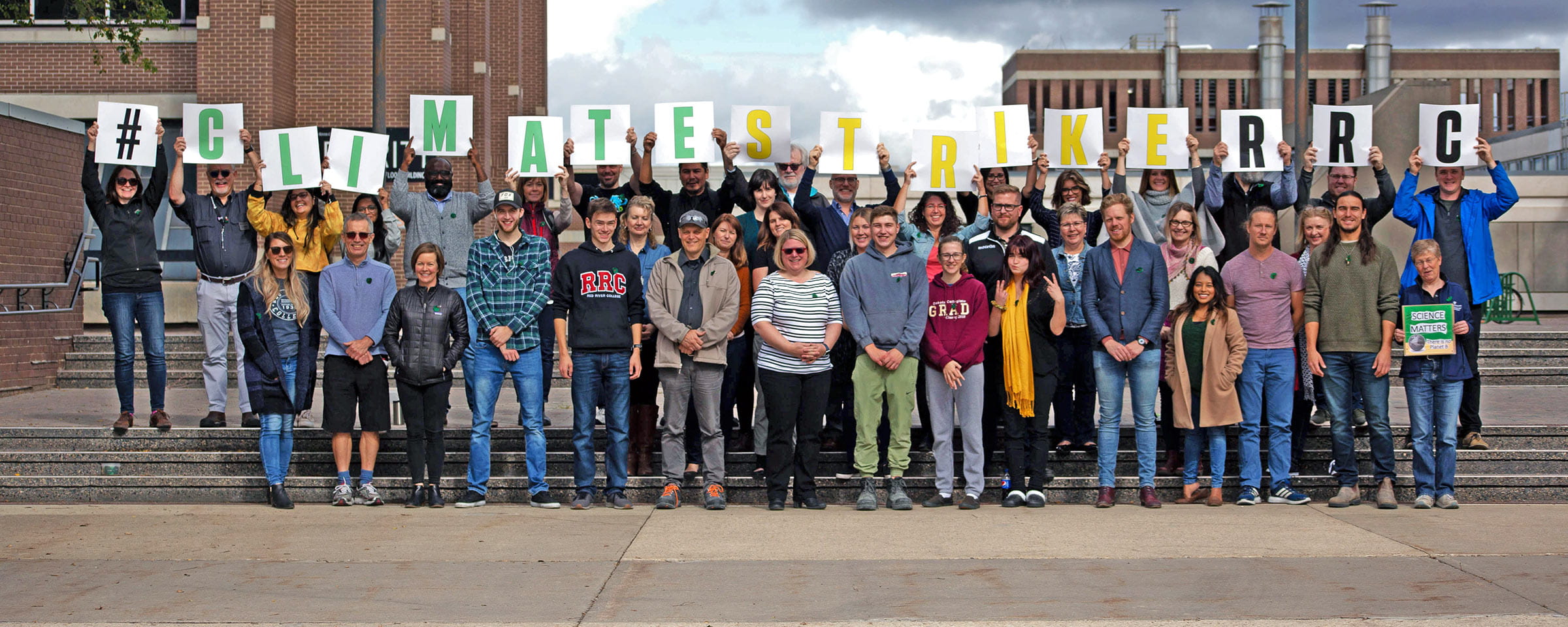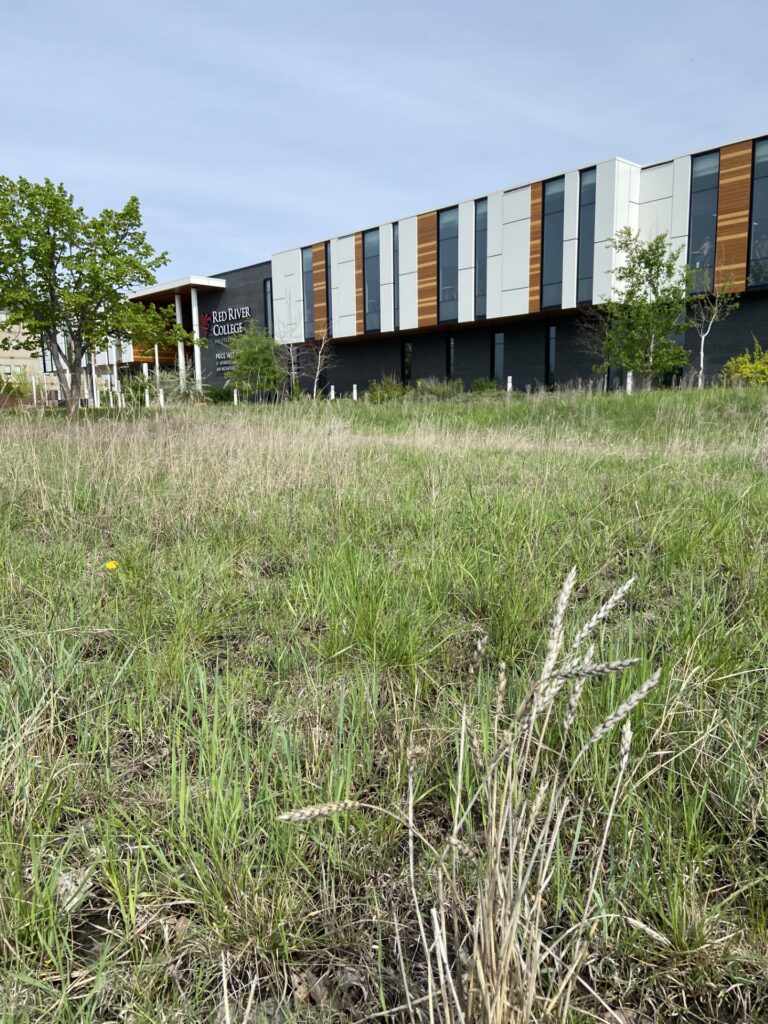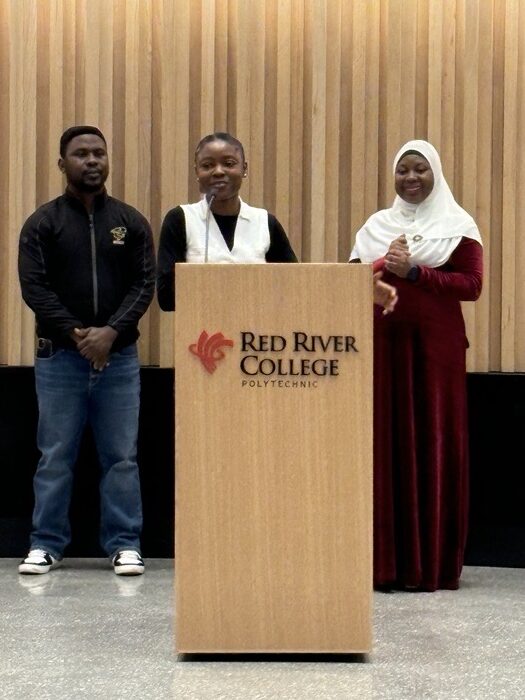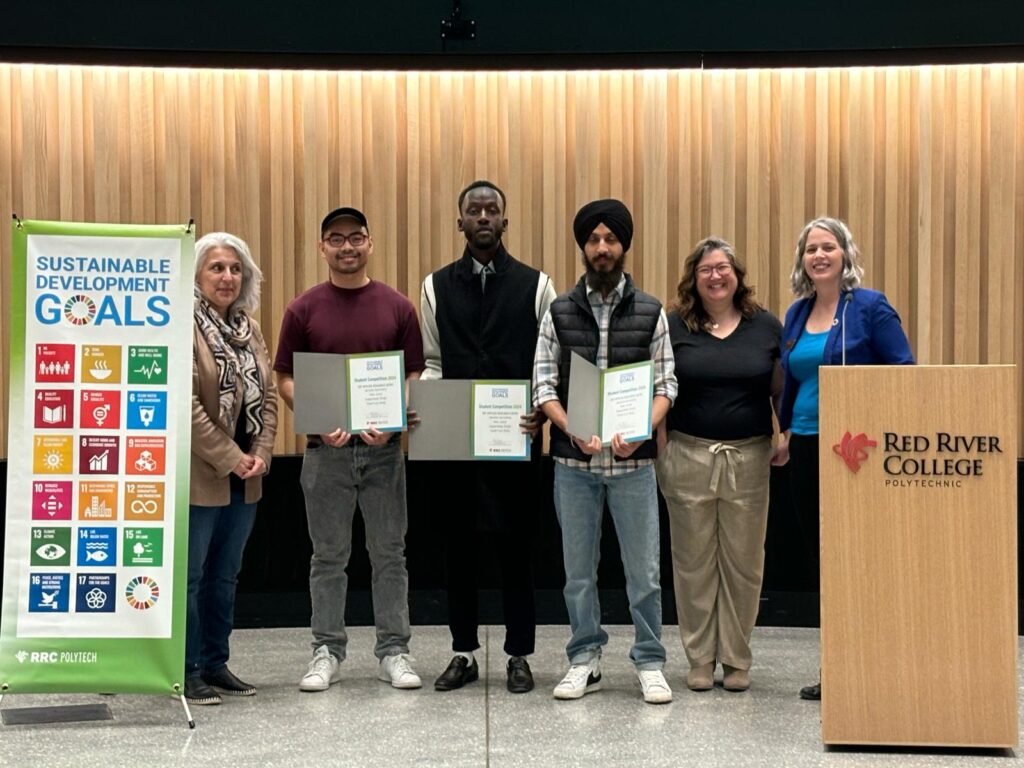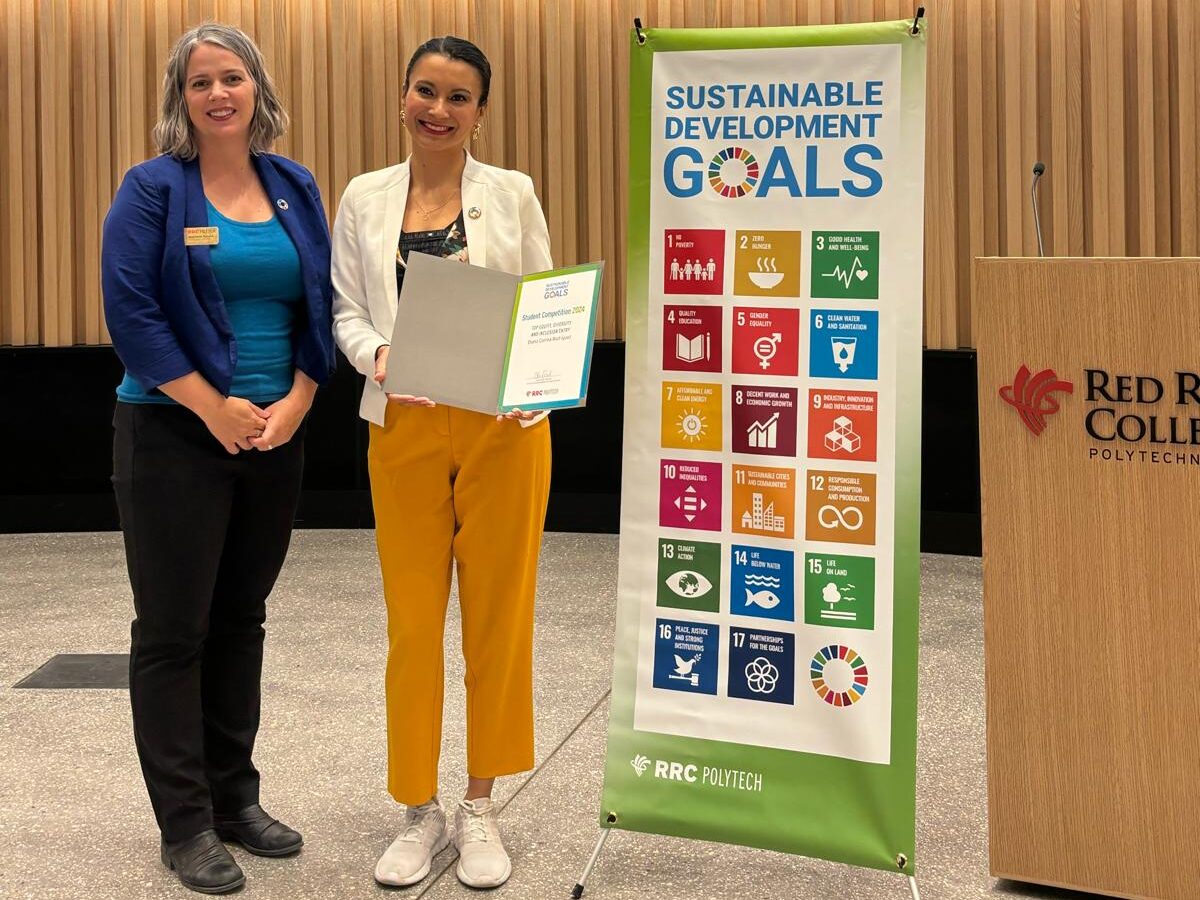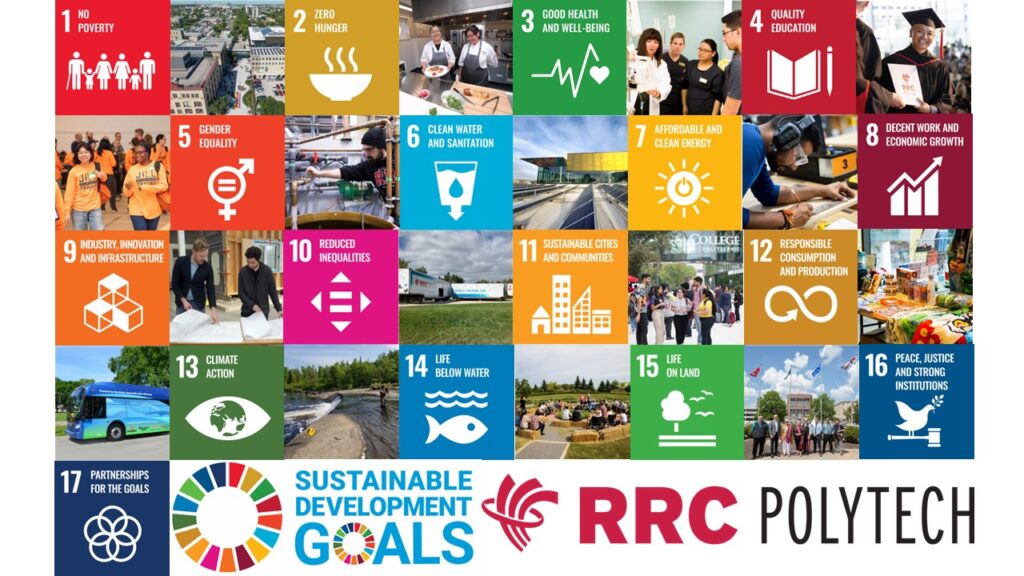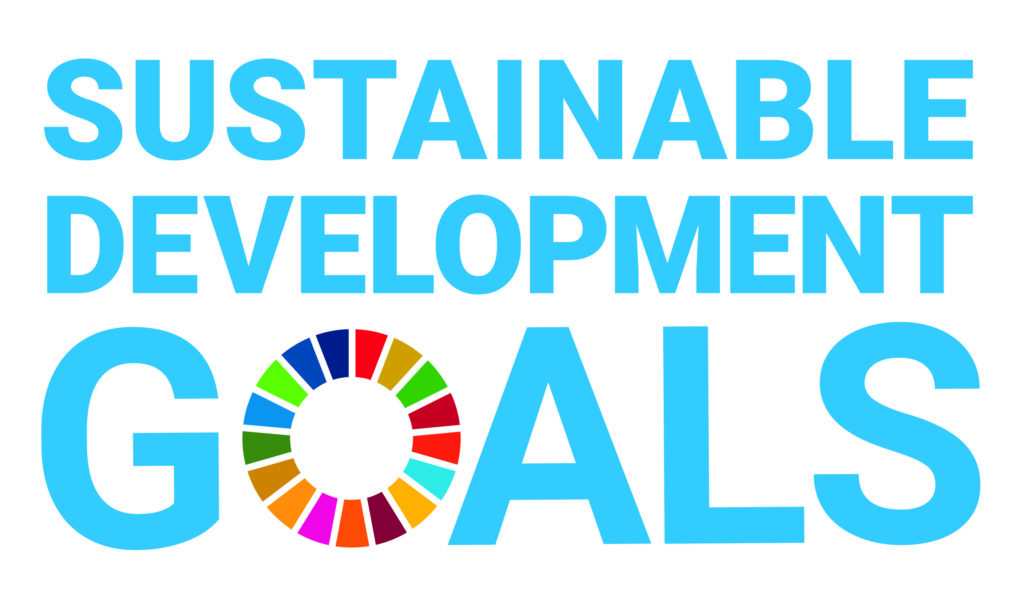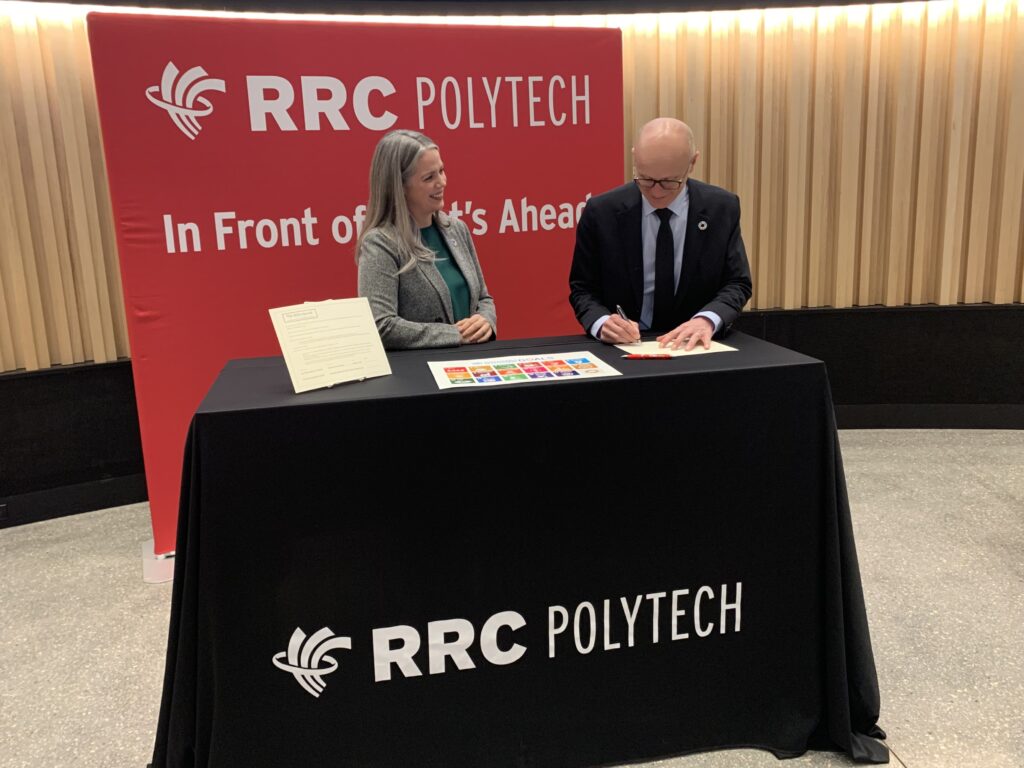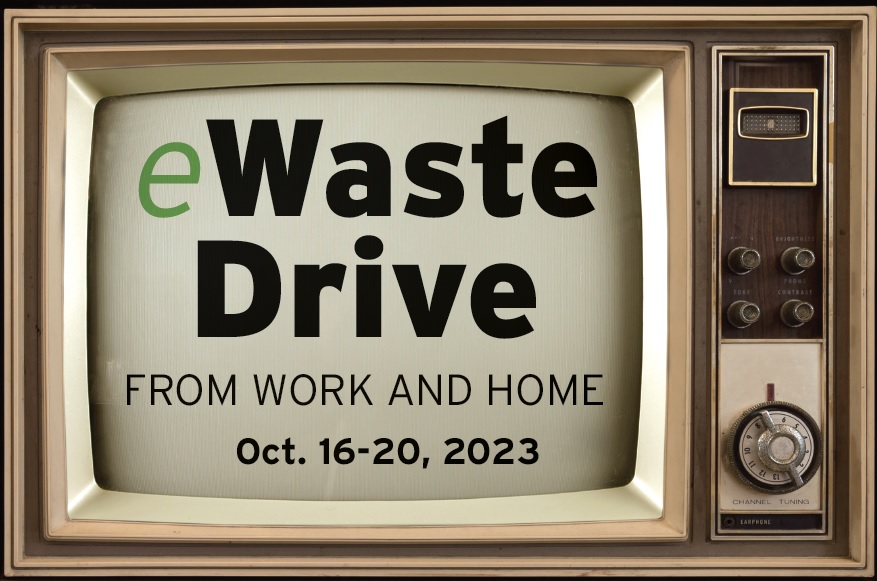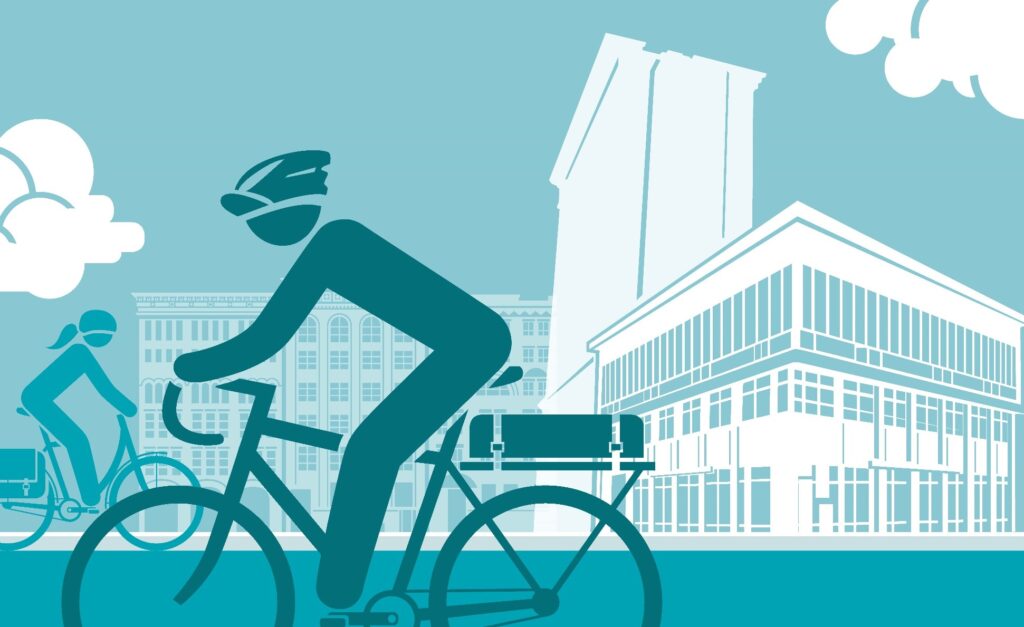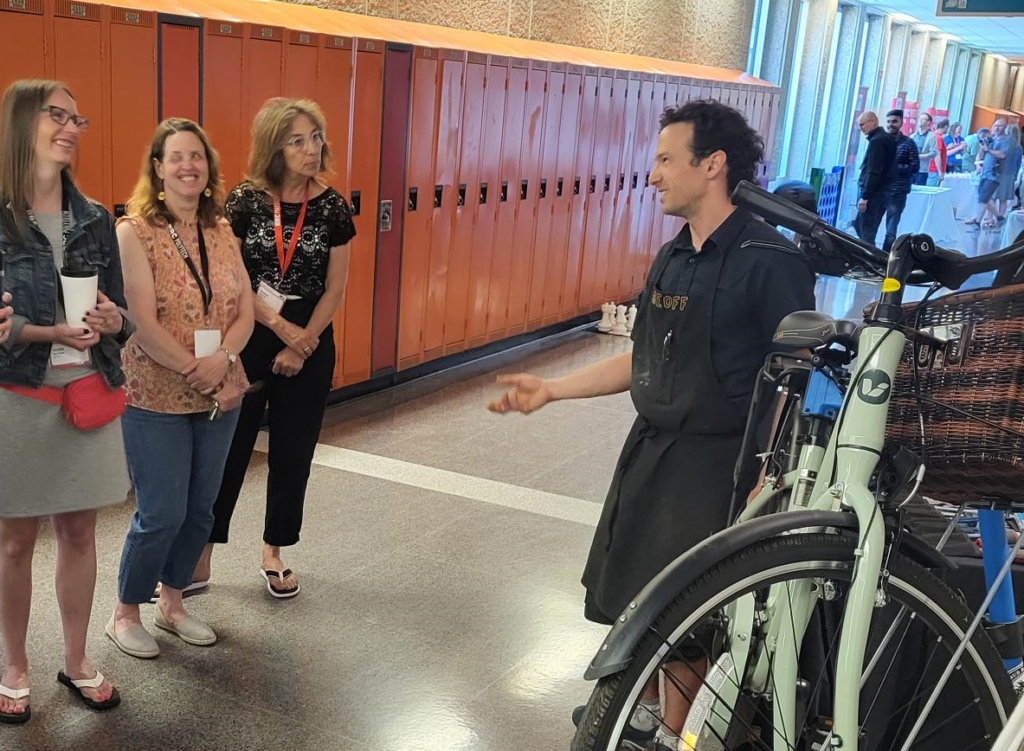Join the Commuter Challenge, Bike to Work Day & Bike Week Winnipeg!
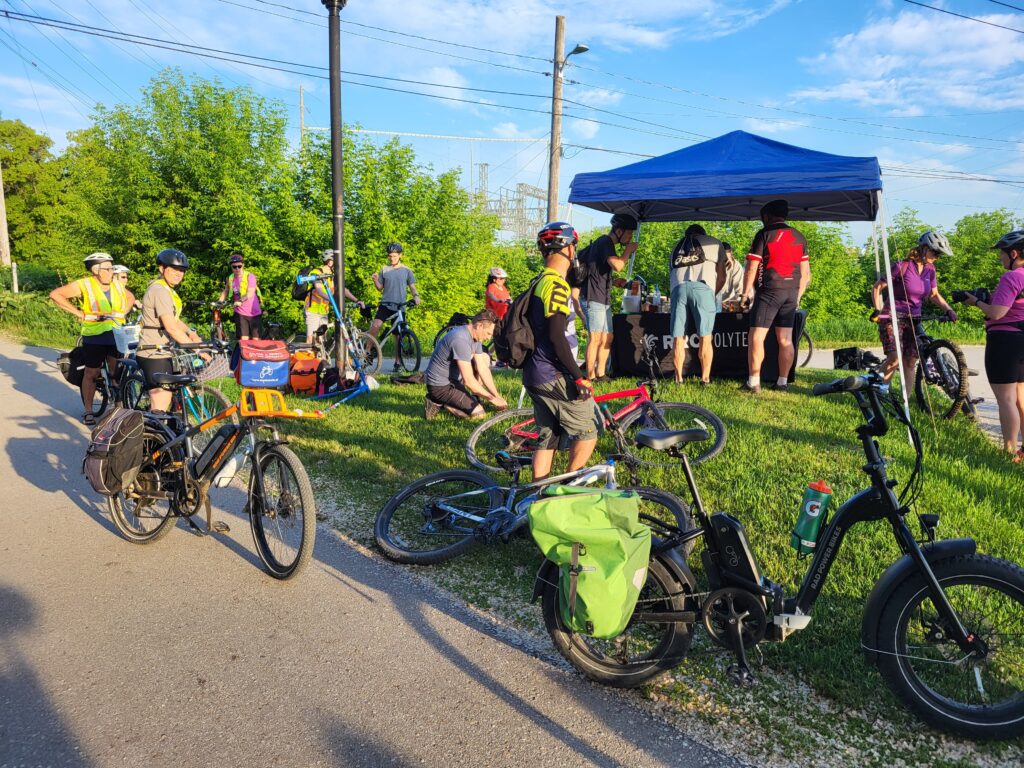
As the summer sun starts to warm the city, it’s the perfect time to think about how we get around. Why not make your commute a bit more exciting and eco-friendly? Here at RRC Polytech, we are excited to invite you to participate in three fantastic events this June: The Commuter Challenge, Bike to Work Day and Bike Week Winnipeg. Participating is a great opportunity to embrace active and sustainable transportation, enjoy some friendly competition, and have fun along the way!
Why participate?
There are several compelling reasons to participate in these events and to adopt a sustainable mode of transportation:
- Environmental Impact: Transportation is the largest source of greenhouse gas emissions in Manitoba, contributing to climate change and air pollution. By choosing sustainable modes of transportation, we can reduce our environmental footprint.
- Health Benefits: Less than half of Manitobans get enough physical activity. Opting for sustainable transportation allows people to incorporate exercise into their daily routines, promoting better health.
- Financial Considerations: Owning and operating a vehicle can be expensive, costing on average between $8,500 and $11,500 annually. Choosing alternative transportation methods can lead to significant savings.
- You could win great prizes!
Commuter Challenge: June 2nd – 8th

The Commuter Challenge is a friendly competition between workplaces across the country, encouraging everyone to choose active and sustainable transportation. In Manitoba, Green Action Centre is the organization in charge of coordinating the Commuter Challenge in our province. RRC Polytech is participating in this competition as part of our commitment to sustainability and the well-being of our staff and students. We encourage you to register under the RRC Polytech team and count your kilometres traveled using sustainable transportation which will enter you for the prizes that Green Action Centre and RRC Polytech are giving away:
- Gold Grand Prize: Annual bus pass sponsored by Winnipeg Transit + two day passes sponsored by the WAG-Qaumajug.
- Silver Grand Prize: Two any-day vouchers sponsored by Winnipeg Folk Fest + two day passes sponsored by the WAG-Qaumajug.
- One $100 gift certificate to Janes’ Restaurant and two $50 Jane’s gift certificates for RRC Polytech participants only.
- And many more prizes! Click here to see them all.
How to Participate:
Register here to be part of the RRC Polytech Team and count your kilometres traveled via a sustainable transportation method for all activities you do during the week. All modes of sustainable transportation qualify, including walking, running, wheeling, cycling, skating, public transportation, carpooling, or telecommuting. The more kilometres you register, the more chances you have to win prizes.
Bike Week Winnipeg: June 9th to 15th

Bike Week Winnipeg is an inclusive event for everyone who likes to ride, whether for recreation, fitness, transportation, sport, or simply for fun. This week is packed with group rides, workshops, events, and more, making it a perfect time to get out and enjoy everything that biking has to offer.
Bike to Work Day – June 11th
One of the highlights of Bike Week is Bike to Work Day. On June 11th, come visit us at our pit stop from 6:30 AM to 9:00 AM at the train bridge at Omand’s Creek. Here’s what you can look forward to:
- Free Coffee and Snacks: Start your day right with some complimentary refreshments.
- Quick Bike Tune-Up: Get your bike checked and ready to ride.
- Meet Other Cyclists: Connect with fellow RRC Polytech cyclists and share your biking stories and tips.
This is a great opportunity to integrate cycling into your daily routine, discover new routes, and maybe even inspire a friend or coworker to join you. Plus, the sense of community and shared enthusiasm at these events is truly motivating.
Click here to learn more about Bike Week Winnipeg
We look forward to seeing you out there!
